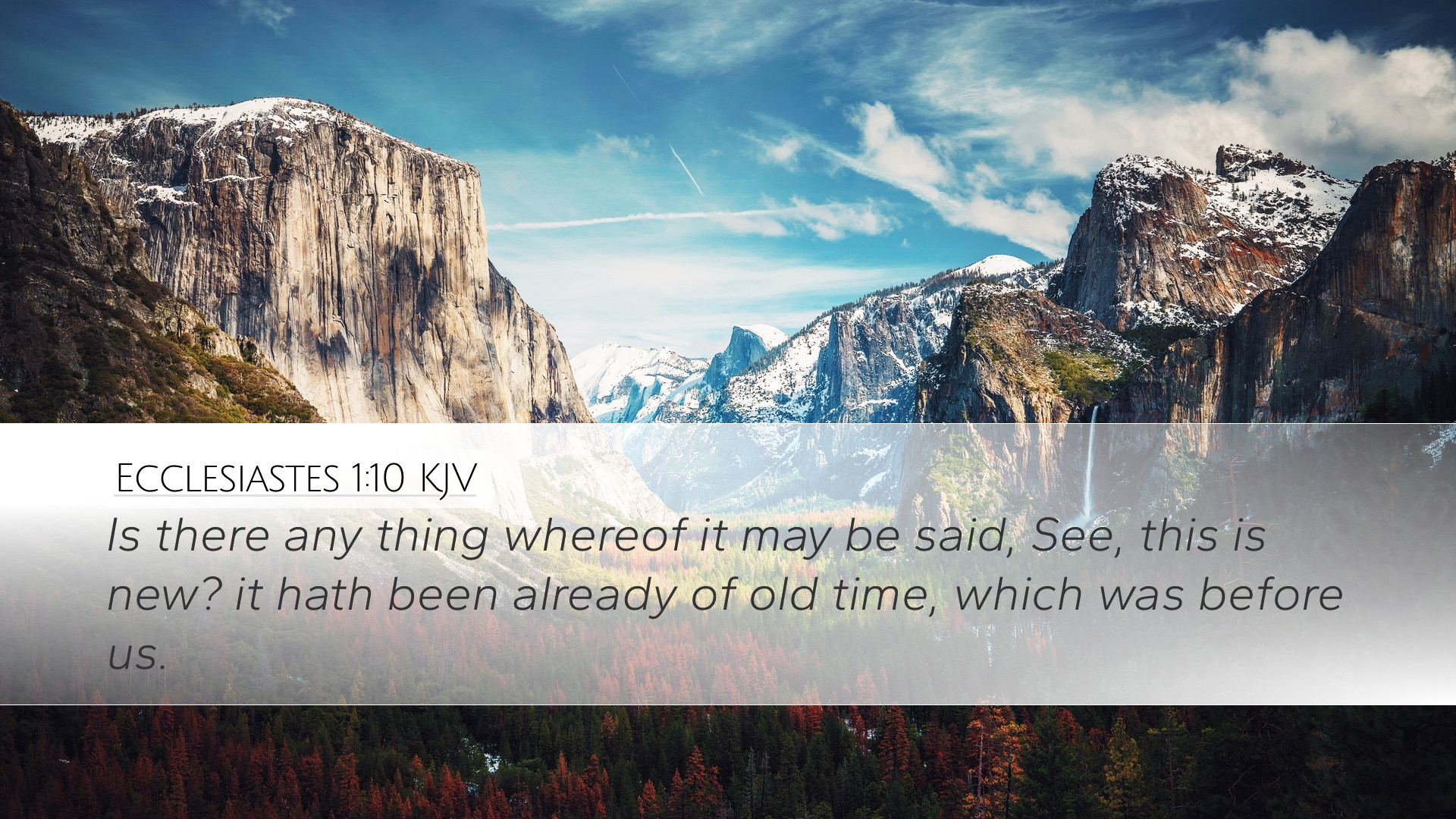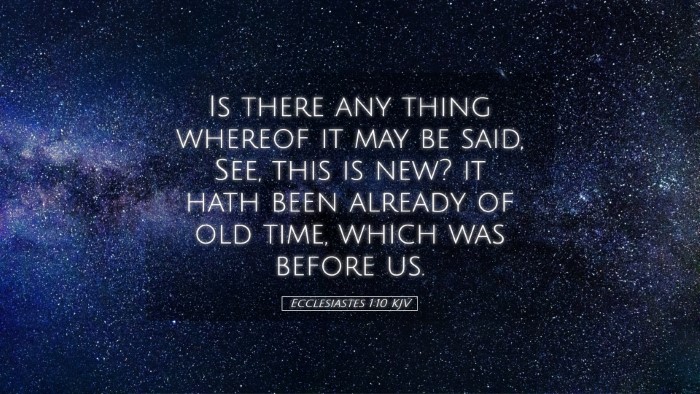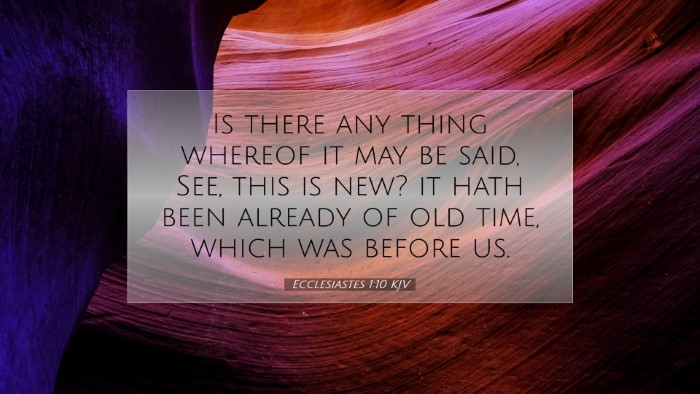Commentary on Ecclesiastes 1:10
Verse: “Is there a thing whereof it may be said, See, this is new? It hath been already of old time, which was before us.”
Introduction
The book of Ecclesiastes presents a thoughtful exploration of the meaning of life under the sun, often reflecting on the cycles of existence and the seeming futility of human endeavor. Chapter 1, verse 10 serves as a focal point for understanding the themes of novelty and the deceptive appearance of innovation throughout human history.
Historical Context
The author of Ecclesiastes, traditionally attributed to Solomon, writes from the perspective of a wise man grappling with the perplexities of existence. This context sets the tone for understanding verse 10 within the work’s overarching theme of the futility of human pursuits.
Verse Analysis
- “Is there a thing whereof it may be said”: This opening phrase invites introspection, challenging the reader to consider the concepts of novelty and the human tendency to celebrate new inventions, ideas, and achievements.
- “See, this is new?”: The rhetorical question suggests skepticism about any claim of originality. The text posits that what we perceive as new is often merely a repetition or reimagining of what has already been.
Theological Insights
Commentators such as Matthew Henry emphasize that every new thing is ultimately old, reinforcing a theological perspective that underscores the sovereignty of God over time. In the grand narrative of creation, humanity's innovations are seen not as deviations but as part of the divine plan where nothing escapes divine observance.
Warnings Against Vanity
Albert Barnes notes the vanity of human pride and the pursuit of the “new.” In attempting to establish significance through innovation, humanity often overlooks the enduring truths established by God. This verse serves as a reminder that the true meaning of life cannot be found in transient trends but in the timeless wisdom of Scripture.
Reflection on Cycles
Adam Clarke reflects on the cyclical nature of human history and experience. The assertion that things have been “of old time” speaks to the repetitive nature of human actions. Despite advances and changes, the fundamental human condition remains constant, thereby questioning the authenticity of our perceptions of progress.
Applications for Today
This verse holds profound relevance in a contemporary context. As pastors and theologians navigate a rapidly changing world, this passage prompts reflection on the essence of ministry and the gospel's timeless message amidst a culture obsessed with the new and novel.
- Evaluation of New Trends: Church leaders are encouraged to critically evaluate trends within ministry and culture, questioning whether they align with the eternal truths of the faith.
- Enduring Truths of Scripture: Students and scholars should anchor their studies in the unchanging principles of the Word of God, understanding that the themes of the gospel transcend cultural shifts.
Conclusion
Ecclesiastes 1:10 challenges both past and present audiences to reconsider the nature of true innovation and to recognize the enduring wisdom found within scripture. Amidst the clamor for newness, the call remains to search for meaning not in mere novelty but in the timeless truths that God has communicated through His Word.


